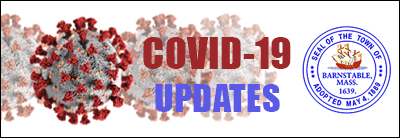The new Mass Cultural Council Safe Harbors Program seeks to provide broad assistance to Massachusetts arts and cultural nonprofit organizations in the form of webinars and online tools.
The webinars will help you assess your current financial situation, create an actionable roadmap for the future, and determine your eligibility and the appropriateness for accessing resources through various COVID-19 Funds. To deliver on this work, we are partnering with the Nonprofit Finance Fund to assist leaders in preparing plans and making decisions.
Webinar Instructional Series is available to any 501c3 cultural nonprofit in Massachusetts. The full series of four-part webinars will begin next week, with webinars on how organizations can take advantage of the new CARES and Family First Acts, starting on Monday, April 6. The four-part webinar series have been designed and curated to four different organization types, so please complete this intake form and use the links there to register for the series that best aligns with your structure. They are designed for the following cohorts:
Group 1: Organizations with paid staff, own facilities, and have existing debt, and/or significant liabilities.
Group 2: Organizations with paid staff, own facilities, and have limited existing debt, and/or minimal liabilities.
Group 3: Organizations with paid staff and do not own facilities, with or without debt
Group 4: Organizations that are all volunteer/no paid staff, regardless of facility ownership and debt/liabilities.
Here are the webinar modules. For more info by following the intake link above.
Module 1: Reviewing Federal Programs and Eligibility
Navigating Policy Change
- Review the Families First Act and CARES Act
- Participants receive application overview and links to trusted sources for additional information and to apply
Module 2: Cash Flow Projections
Assessing Immediate and Forthcoming Cash Needs
- Unlike a budget which summaries revenue and expense for a block of time (typically a year) cash flow plots total cash available, received and spent month by month or week by week
- Allows organizations to understand the overall cash position, calculate shortfalls the specific need and timing for funds
- Participants receive Cash Flow Projection Template and instructions
Module 3: Scenarios and Budgets
Adjusting the Operating Plan
- Scenario planning allows leaders and board members to imagine budget implications of various ‘what ifs’ and create plans of action, allowing for data-informed decision making
- Allows teams to prioritize based on several factors (fixity, key staff, mission, etc.)
- Participants receive Scenario Testing Template and instructions
Module 4: Decision Making Amid Crisis
Pulling It All Together
- The decision-making process – who holds which roles
- Key decisions and how to frame them
- How to tell your financial and programmatic story to funders, staff, lenders, board and public
- Closure/Soft landing possibilities
- Participants receive NFF Decision Tool (workbook) and instructions
